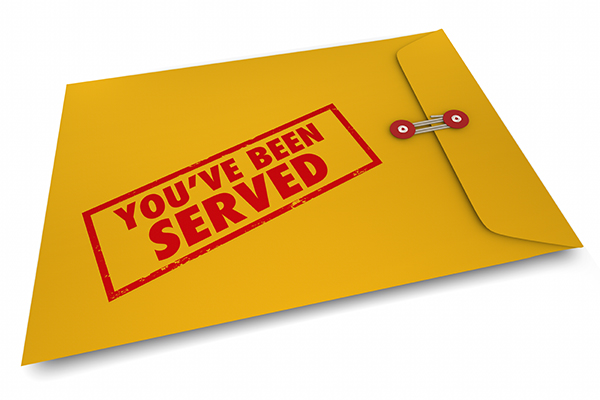
You’ve Been Served. Does Your Service Constitute Under Utah Rules?
The quote “You’ve been served.” Has been utilized in so many instances, captions, movies, memes, etc. They are words most of us hope to never hear. Utah certainly has rules and statutes outlining how and who can “serve” documents on you. An ex-wife or ex-husband (or soon-to-be ex) cannot just walk up, hand you papers, and consider you to have been served. Service is an important piece of your case. If not properly served, and the opposite party is not aware of an action, your case could be dismissed.
Under the Utah Rules of Civil Procedure, an action is commenced when:
“A civil action is commenced (1) by filing a complaint with the court, or (2) by service of a summons together with a copy of the complaint in accordance with Rule 4.”
When initiating a divorce action, the opposite party is served with a copy of the Complaint and a Summons instructing them that a Complaint has been filed and an Answer to that Complaint must be filed with the corresponding Court. The Utah Rules of Civil Procedure go on to explain the ways in which a person may be served. A person may be served in one of two ways: by personal service or by mail. Both ways have their own set of rules.
As to personal service, they are several provisions, but the first part of the rule states that personal service is appropriate when the Complaint and Summons are served:
A) Upon any individual other than one covered by paragraphs (d)(1)(B), (d)(1)(C) or (d)(1)(D), by delivering a copy of the summons and complaint to the individual personally, or by leaving them at the individual’s dwelling house or usual place of abode with a person of suitable age and discretion who resides there, or by delivering them to an agent authorized by appointment or by law to receive process.
Typically, law firms will hire a constable or a process server to serve the Complaint and Summons.
Service can also be completed by mail. The Utah Rules of Civil Procedure state:
( A) The summons and complaint may be served upon an individual other than one covered by paragraphs (d)(1)(B) or (d)(1)(C) by mail or commercial courier service in any state or judicial district of the United States provided the defendant signs a document indicating receipt.
In most instances, service by mail is done by certified mail, which requires a signature upon receipt for the mail. The certified card is then returned to the sender.
The foregoing is not comprehensive and simply highlights some of the procedures outlined in the Utah Rules of Civil Procedure. If you have any questions regarding whether or not you were properly served, contact one of our experienced professionals today.
Leave a reply 
Leave a reply